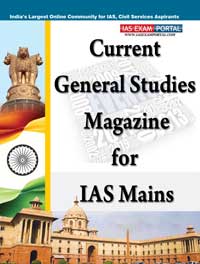
Current General Studies Magazine (March 2016)
General Studies - II "Debate Based Article" (The shifting sands in Afghanistan)
Three major developments during the last 10 days are likely to have significant implications on the future of the Afghan peace process — the unsuccessful conclusion of the Afghan Quadrilateral Coordination Group’s (QCG) talks in Islamabad, the U.S. Congress’s conditions on Pakistan to do more on Afghanistan to receive any further American aid, and the killing of Afghan Taliban leader Mullah Akhtar Mansour in Balochistan by an American drone.
Did one development cause the other? Or did they take place simultaneously, and is the sequencing just a coincidence? Either way, they have serious implications for the Afghan peace process. A fourth development, though not totally outside the above three, is a formal understanding between the Afghan government and Hezb-e-Islami Gulbuddin of Gulbuddin Hekmatyar. This agreement, though more likely to strengthen the internal peace process within Afghanistan, would have its own repercussions on the QCG dialogue.
The floundering Afghan talks
The fifth meeting of the QCG, comprising Afghanistan, Pakistan, China and the U.S., and held on May 18 in Islamabad, was a disaster before it could even begin. It took place in a difficult environment with developments in Kabul and Washington setting a tough tone. The earlier Taliban suicide attack in Kabul in April killing more than 28 people vitiated the atmosphere; Afghan President Ashraf Ghani took a tough posture vis-à-vis Pakistan. In Washington meanwhile, a development in April further strained U.S.-Pakistan relations. U.S. lawmakers made it clear that they would not sanction the administration’s attempt to offer Pakistan a loan under the Foreign Military Financing programme to buy eight F-16 fighter aircraft from the U.S. Foreign Military Fund unless Pakistan did more on Afghanistan, Taliban and the Haqqani Network. Immediately, there were a series of responses in Pakistani media informing the Americans about “Pakistani sacrifices” in the War on Terrorism, and the need for F-16s. The debate also revived the animosity over “American treachery” and getting influenced by Indian Prime Minister Narendra Modi. Leaders in Islamabad even issued a warning that if the Americans didn’t subsidise the sale, they would look elsewhere (meaning Russia).